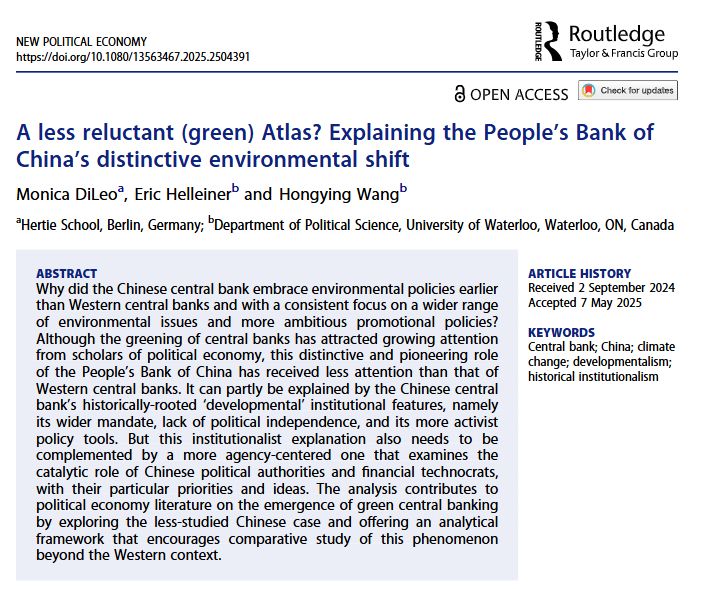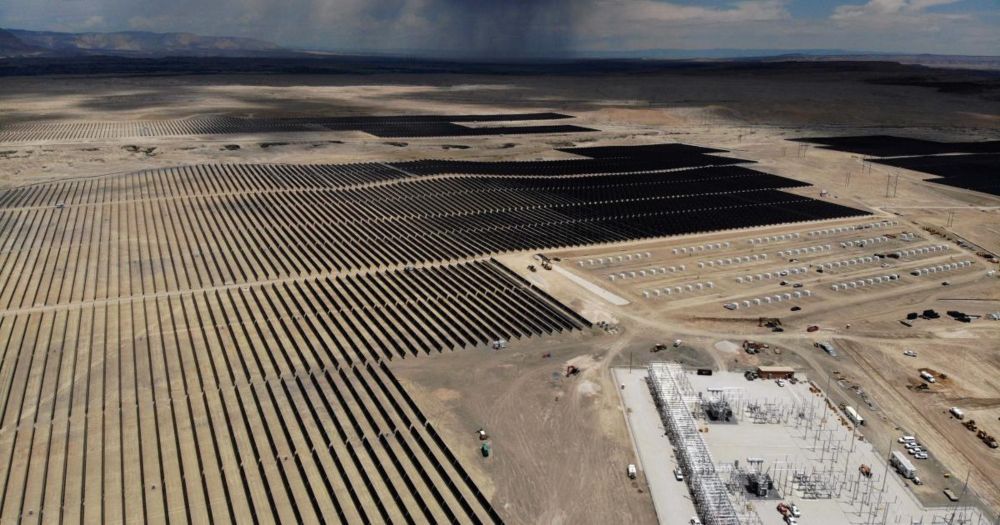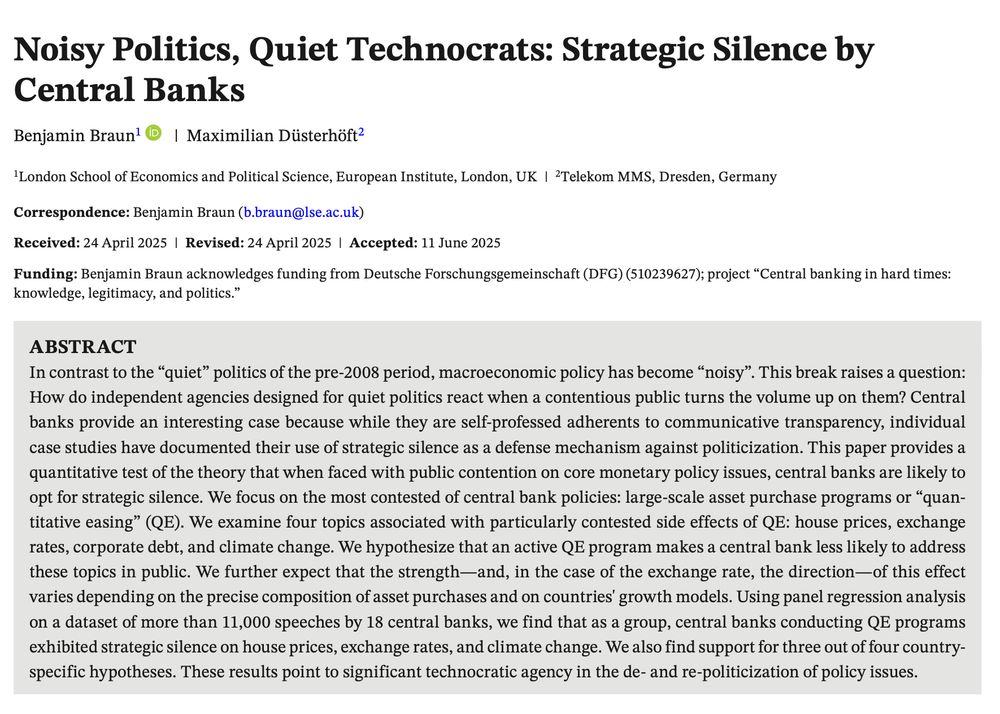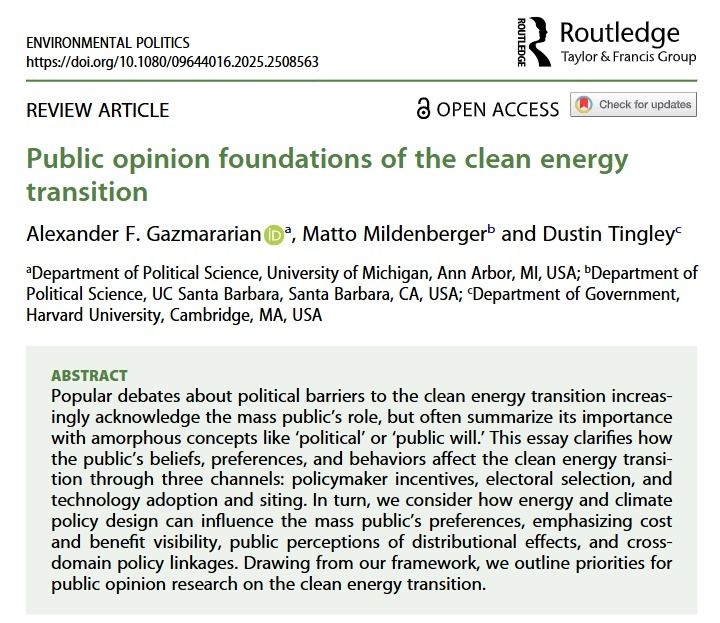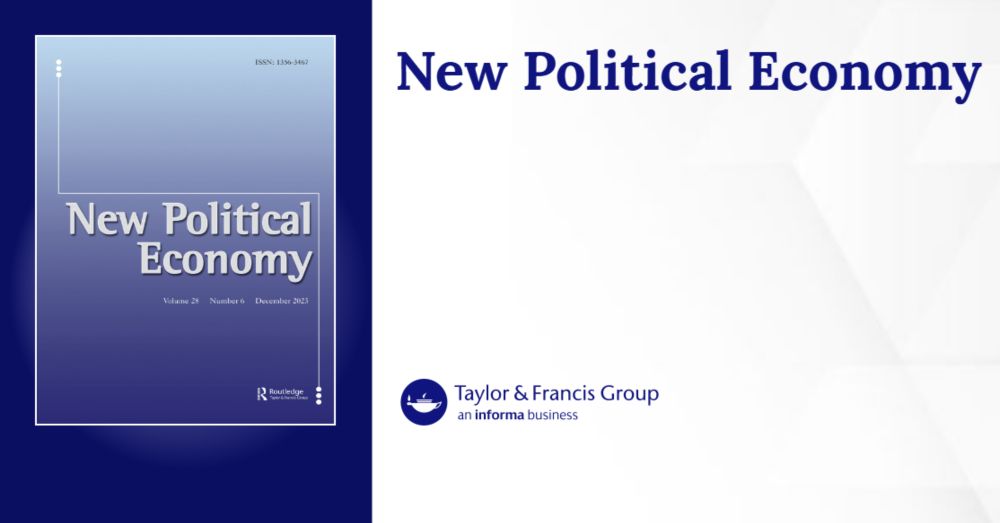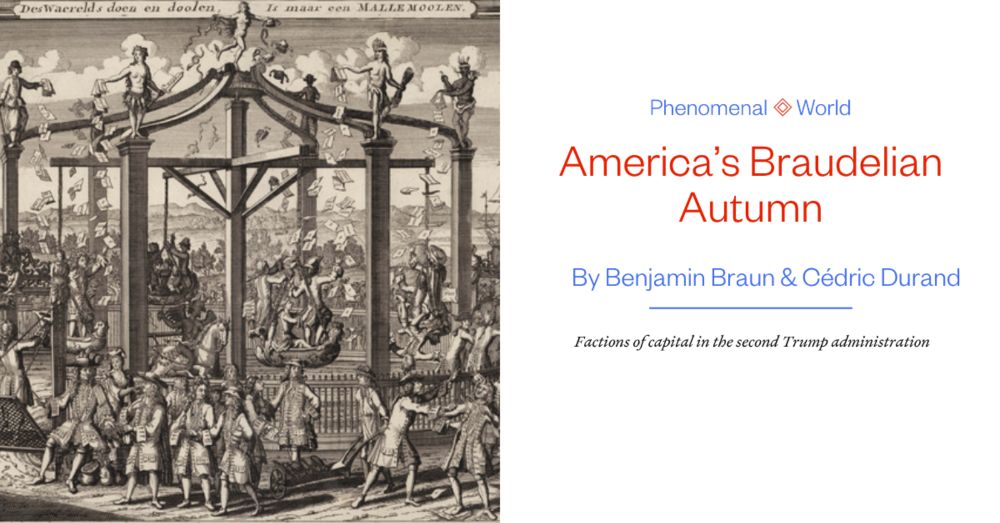Monica DiLeo
@monicadileo.bsky.social
390 followers
470 following
40 posts
Post-doc @hertieschool.bsky.social | visiting fellow @granthamlse.bsky.social | political economy | central bank politics
Posts
Media
Videos
Starter Packs
Pinned
Reposted by Monica DiLeo
Reposted by Monica DiLeo
Benjamin Braun
@benbraun.bsky.social
· Sep 1
Jérôme Deyris
@jdeyris.bsky.social
· Sep 1

Central Bankers as Migrating Birds: How Inflation Shapes the Rhetorical Strategies of Doves and Hawks
The Eurosystem is built on a compelling promise: shielded from national politics, ECB Governing Council members would be better positioned to deploy their science-based expertise. Far from embodying ...
doi.org
Reposted by Monica DiLeo
Reposted by Monica DiLeo
Jérôme Deyris
@jdeyris.bsky.social
· Sep 1

Central Bankers as Migrating Birds: How Inflation Shapes the Rhetorical Strategies of Doves and Hawks
The Eurosystem is built on a compelling promise: shielded from national politics, ECB Governing Council members would be better positioned to deploy their science-based expertise. Far from embodying ...
doi.org
Reposted by Monica DiLeo
Jérôme Deyris
@jdeyris.bsky.social
· Jul 30
Reposted by Monica DiLeo
Benjamin McKean
@blmckean.bsky.social
· Jul 14
Reposted by Monica DiLeo
Reposted by Monica DiLeo
Reposted by Monica DiLeo
Nick Taylor
@ntaylor.bsky.social
· Jun 2
Select tickets – Transforming central banking in the ecological crisis: intersecting perspectives from political economy and accounting – Queen Mary University of London, iQ East (Scape) 0.14
This event brings together scholars to discuss political economy and accounting perspectives on the challenges for transforming...
www.tickettailor.com
Monica DiLeo
@monicadileo.bsky.social
· May 30
Monica DiLeo
@monicadileo.bsky.social
· May 30

